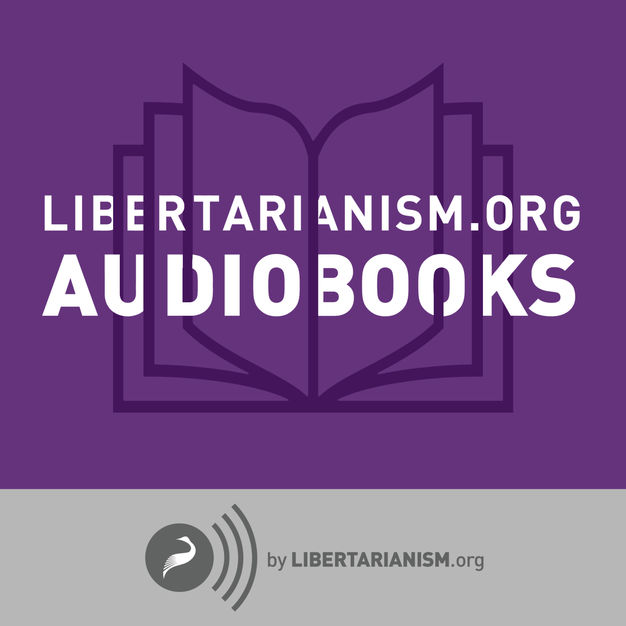
Libertarianism.org Audiobooks
Cato Institute
Free audio versions of original books from Libertarianism.org Press, on philosophy, history, economics, and more.
- 2 hours 26 minutesThe Three Languages of Politics by Arnold Kling
When it was first released in 2013, Arnold Kling’s The Three Languages of Politics was a prescient exploration of political communication, detailing the “three tribal coalitions” that make up America’s political landscape. Progressives, conservatives, and libertarians, he argued, are “like tribes speaking different languages. As a result, political discussions do not lead to agreement. Instead, most political commentary serves to increase polarization.”
The first edition did not make it sufficiently clear that the three-axes model is meant to describe political psychology and political communication, rather than to dissect political thought. The second edition clarified that.
The second edition made only an offhand mention of the newly emerged phenomenon of Donald Trump. The third edition includes a brief chapter about this phenomenon.
Mr. Trump’s victory in the 2016 presidential election has stimulated interest in political psychology and political communication. But the insight that drove Kling to write the third version of this book is more durable and less accidental than that electoral outcome.
There is now widespread concern with the way that political divisions are exacerbated by the communication that takes place in both traditional and social media. The third edition includes an afterword that covers some of this very recent literature related to my theme.
The Three Languages of Politics is an accessible, precise, and insightful guide to how to lower the barriers coarsening our politics. This is not a book about one ideology over another. Instead, it is a book about how we communicate issues and our ideologies, and how language intended to persuade instead divides. Kling offers a way to see through our rhetorical blinders so that we can incorporate new perspectives, nuances, and thinking into the important issues we must together share and resolve.
Arnold Kling received his PhD in economics from MIT in 1980. He is the author of several books, including Crisis of Abundance: Re-thinking How We Pay for Health Care, published by the Cato Institute. He writes a monthly column for the Library of Economics and Liberty. Find him online at www.arnoldkling.com.
Hosted on Acast. See acast.com/privacy for more information.
15 August 2019, 3:45 pm - 5 hours 12 minutesPeace, War, and Liberty
In its dealings with the broader world, has the United States been a force for liberty? Should it be? And if so, how?
To answer these questions, Peace, War, and Liberty: Understanding U.S. Foreign Policy traces the history of the United States foreign policy and the ideas that have animated it, and considers not only whether America’s policy choices have made the world safer and freer but also the impact of those choices of freedom at home.
In this evenhanded but uncompromising commentary, Christopher A. Preble considers the past, present, and future of U.S. foreign policy: why policymakers in the past made certain choices, and how the world might look if America chose a different path for the future. Would America, and the world, be freer if America’s foreign policy were more restrained?
Christopher A. Preble is the vice president for defense and foreign policy studies at the Cato Institute. He is the author of three books including The Power Problem: How American Military Dominance Makes Us Less Safe, Less Prosperous and Less Free, which documents the enormous costs of America’s military power, and proposes a new grand strategy to advance U.S. security; and John F. Kennedy and the Missile Gap, which explores the political economy of military spending during the 1950s and early 1960s. Preble is also the lead author of Exiting Iraq: How the U.S. Must End the Occupation and Renew the War against Al Qaeda; and he co-edited, with Jim Harper and Benjamin Friedman, Terrorizing Ourselves: Why U.S. Counterterrorism Policy Is Failing and How to Fix It. Before joining Cato in February 2003, he taught history at St. Cloud State University and Temple University. Preble was a commissioned officer in the U.S. Navy, and served onboard USS Ticonderoga (CG-47) from 1990 to 1993. Preble holds a Ph.D. in history from Temple University.
Hosted on Acast. See acast.com/privacy for more information.
3 May 2019, 2:03 pm - 2 hours 13 minutesSelf-Interest and Social Order in Classical Liberalism
There is a well-worn image and phrase for libertarianism: “atomized individualism.” This hobgoblin has spread so thoroughly that even some libertarians think their philosophy unreservedly supports private persons, whatever the situation, whatever their behavior. Smith’s Self-Interest and Social Order in Classical Liberalism, corrects this misrepresentation with careful intellectual surveys of Hume, Smith, Hobbes, Butler, Mandeville, and Hutcheson and their respective contributions to political philosophy.
The essays in this book originally appeared on Libertarianism.org.
Hosted on Acast. See acast.com/privacy for more information.
17 July 2017, 3:30 pm - 2 hours 18 minutesThe American Revolution and the Declaration of Independence
For almost a century after the U.S. Constitution went into effect, few Americans seem to have questioned the legitimacy of the Revolution. Since the Progressive generation of historians began the work of serious criticism and revision, however, students of American life have largely learned to live with a more complicated understanding of the revolutionary legacy. In The American Revolution and the Declaration of Independence, George H. Smith’s treatment of the era charts space for libertarians to both criticize and revere the American heritage.
The essays in this book originally appeared as columns on Libertarianism.org.
Hosted on Acast. See acast.com/privacy for more information.
17 July 2017, 3:30 pm - 5 hours 38 minutesFreethought and Freedom
Liberty of conscience and freedom of thought are twin, core components of modern life in societies across the world. The ability to pursue one’s vision of the right and the good, coupled with liberty to pursue individual reason and enlightenment, helped produce so much of modern life that we may be apt to forget that libertarian philosophy was not dictated by Nature. Freethought and Freedom surveys the long history of religious and intellectual liberty, exploring their key ideas along the way.
The essays in this book originally appeared as columns on Libertarianism.org.
Hosted on Acast. See acast.com/privacy for more information.
17 July 2017, 3:00 pm - 5 hours 4 minutesSpecialization and Trade: A Re-introduction to Economics
Since the end of the second World War, economics professors and classroom textbooks have been telling us that the economy is one big machine that can be effectively regulated by economic experts and tuned by government agencies like the Federal Reserve Board. It turns out they were wrong. Their equations do not hold up. Their policies have not produced the promised results. Their interpretations of economic events—as reported by the media—are often off-the-mark and unconvincing.
A key alternative to the one big machine mindset is to recognize how the economy is instead an evolutionary system, with constantly changing patterns of specialization and trade. This book introduces you to this powerful approach for understanding economic performance. By putting specialization at the center of economic analysis, Arnold Kling provides you with new ways to think about issues like sustainability, financial instability, job creation, and inflation. In short, he removes stiff, narrow perspectives and instead provides a full, multi-dimensional perspective on a continually evolving system.
Hosted on Acast. See acast.com/privacy for more information.
6 June 2016, 11:15 pm - 2 hours 25 minutesPolitical Philosophy: An Introduction
Most political debate is superficial. Just turn on cable news. Philosophy is for people who want to understand the deep questions. The goal of political philosophy is to determine the standards by which we judge different institutions good or bad, just or unjust.
Some people might think they don’t have much need of political philosophy: “Who case about wishy-washy obtuse notions of justice? I’m a pragmatist. I just want to know what works.” But this isn’t a way of avoiding political philosophy; it’s a way of being dogmatic about it. Before we can just do “what works,” we have to know what counts as working.
This book serves as an introduction to some of the major theories of justice, to the arguments philosophers have made for and against these theories, and, ultimately, to how to be more thoughtful and rigorous in your own thinking.
Hosted on Acast. See acast.com/privacy for more information.
12 February 2016, 8:15 pm - 6 hours 44 minutesIndividualism: A Reader
The Libertarianism.org Readers series provides an introduction to the major ideas and thinkers in the libertarian tradition.
Individualism is one of most criticized and least understood ideas in social and political thought. Is individualism the ability to act independently amidst a web of social forces? A vital element of personal liberty and a shield against conformity? Does it lead to or away from unifying individuals with communities?
Individualism: A Reader provides a wealth of illuminating essays from the 17th to the early 20th centuries. In 26 selections from 25 writers individualism is explained and defended, often from unusual perspectives. This anthology includes not only selections from well-known writers, but also many lesser-known pieces—reprinted here for the first time—by philosophers, social theorists, and economists who have been overlooked in standard accounts of individualism.
The depth and complexity of ideas about individualism are reflected in the six sections in this collection. The first examines individuality generally, with the following five detailing social, moral, political, religious, and economic individualism. Throughout, individualism is analyzed and defended through the lenses of classical liberalism, free-market libertarianism, individual anarchism, voluntary socialism, religious individualism, abolitionism, free thought, and radical feminism.
Both richly historical and sharply contemporary, Individualism: A Reader provides a multitude of perspectives and insights on personal liberty and the history of freedom.
Hosted on Acast. See acast.com/privacy for more information.
7 April 2015, 4:30 pm - More Episodes? Get the App
Your feedback is valuable to us. Should you encounter any bugs, glitches, lack of functionality or other problems, please email us on [email protected] or join Moon.FM Telegram Group where you can talk directly to the dev team who are happy to answer any queries.
 Libertarianism.org Guides
Libertarianism.org Guides
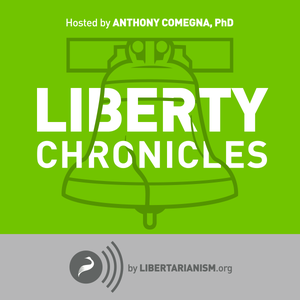 Liberty Chronicles
Liberty Chronicles
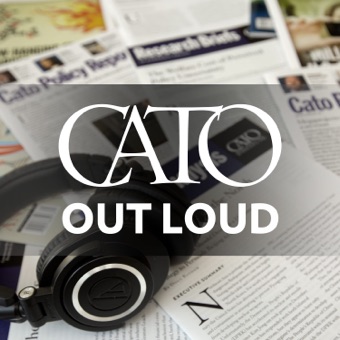 Cato Out Loud
Cato Out Loud
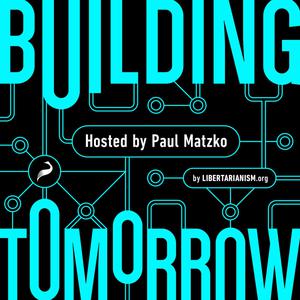 Building Tomorrow
Building Tomorrow
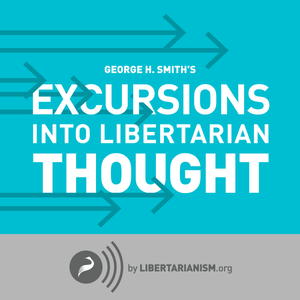 Excursions into Libertarian Thought
Excursions into Libertarian Thought